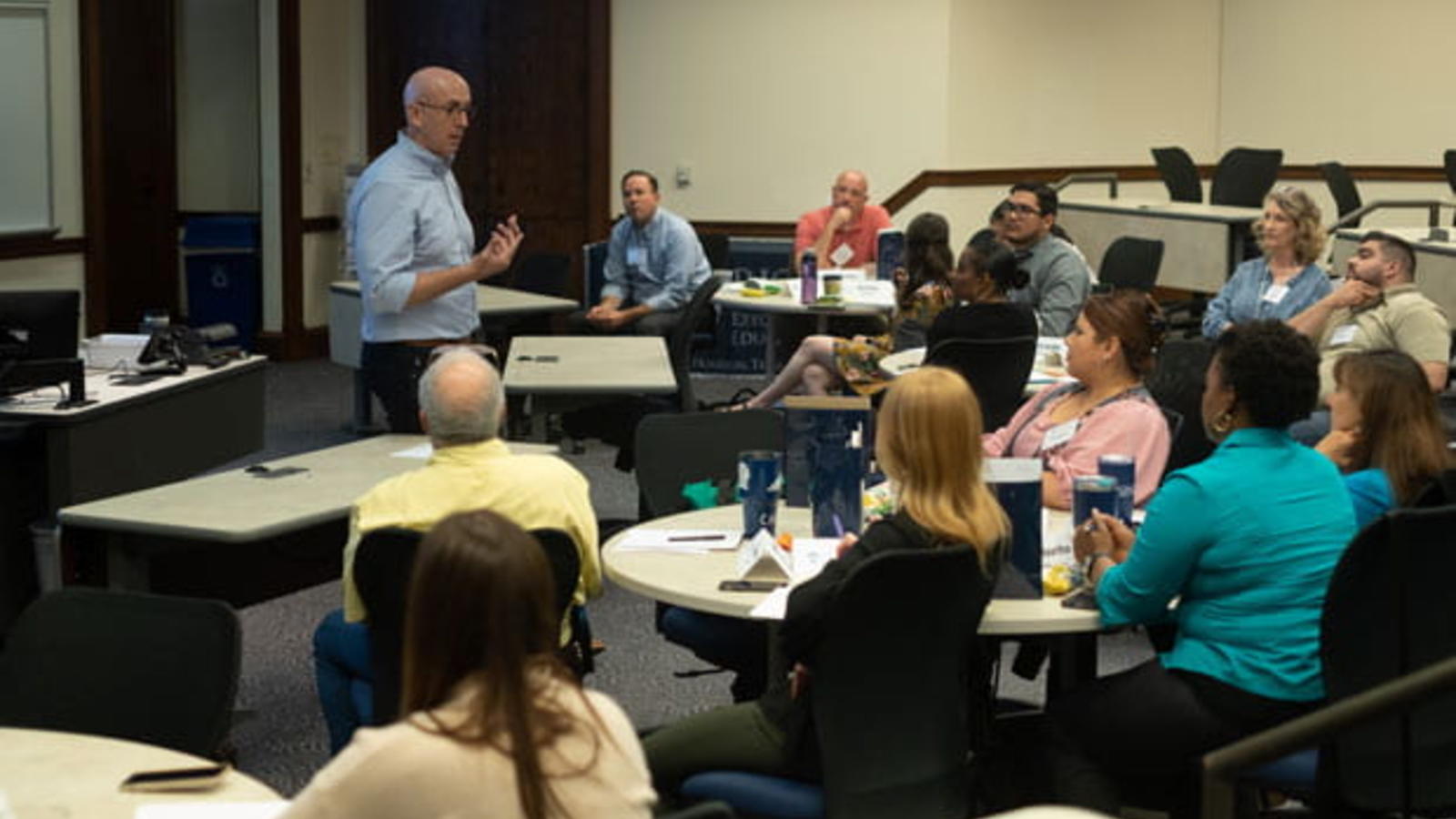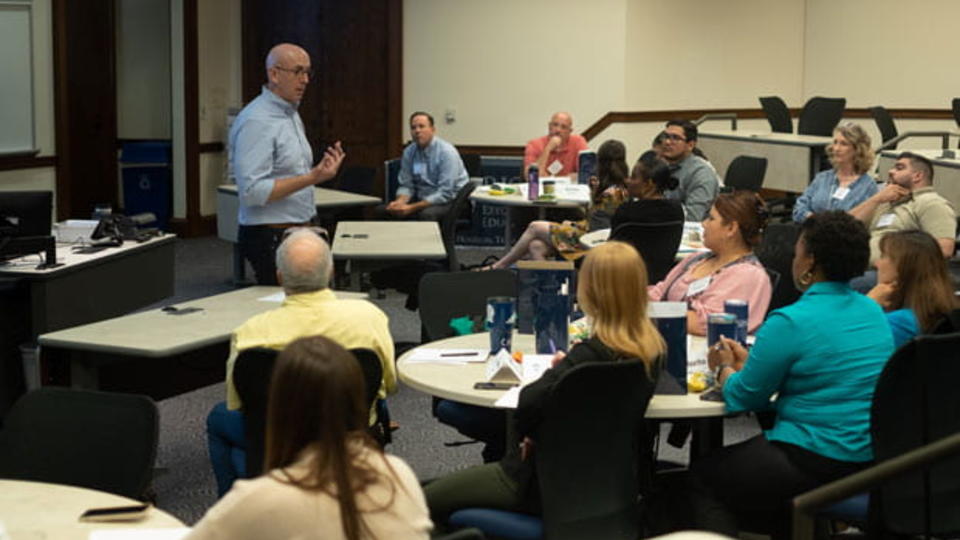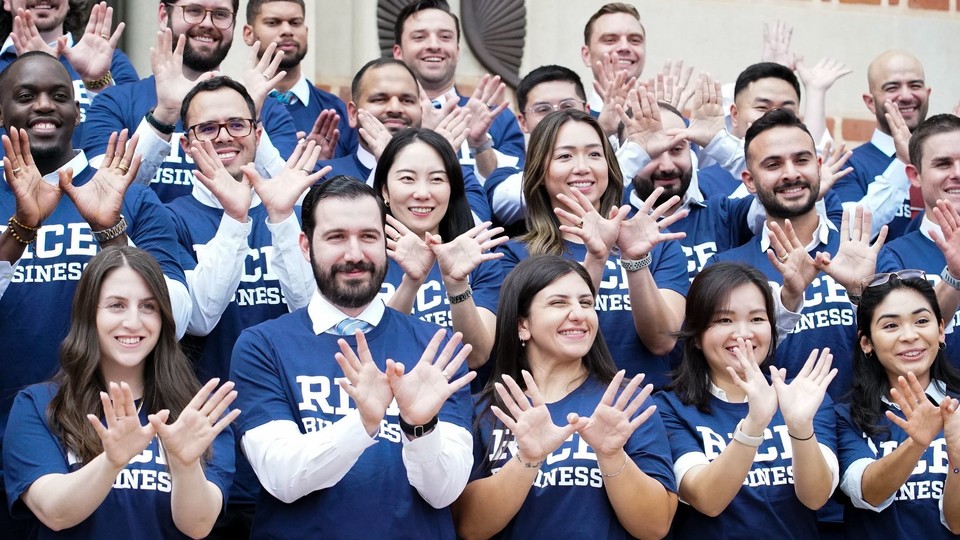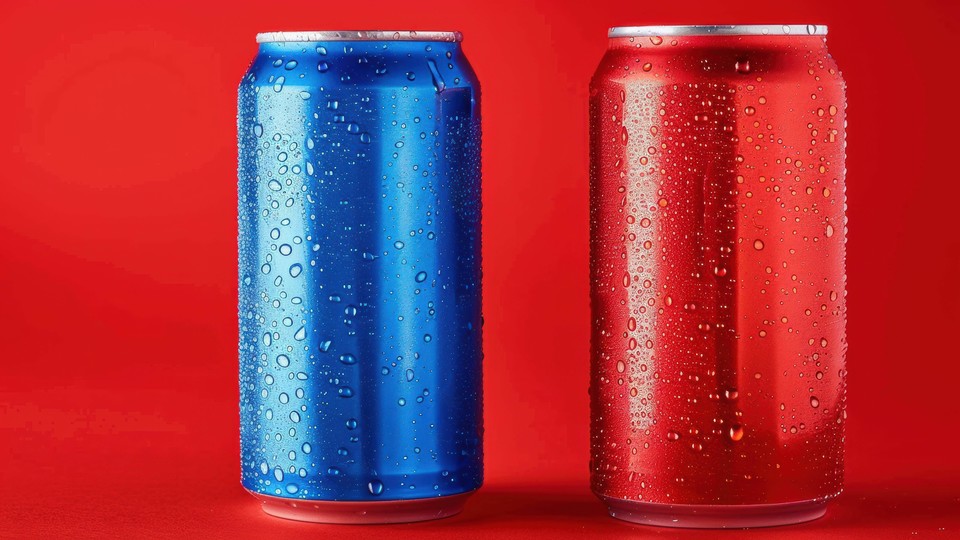Democratic debate: 5 things investors and Trump must watch out for
In a new study from Rice University, researchers found the outcome of presidential elections at the county level from 1992 to 2016 were directly influenced by stock market performance. The researchers unearthed this gem of a stat: a one-percentage-point higher dividend income ratio is associated with an increase in incumbent vote share by 2.4 percentage points.
Crypto Portfolio Will Analyze Twitter to Gauge Trader Sentiment
Utpal Dholakia, the chair of marketing at Rice University who specializes in pricing strategies, noted that analyzing tweets about crypto to invest in crypto could contribute to a cycle, making it easy for traders to drive up prices.“Crypto are niche markets, they are made up of a specialized group of investors and participants,” he said.
Trump Has Real Reasons to Fixate Over the Stock Market
New academic research finds that the market has a measurable influence on how people who own shares vote -- potentially a big one. The study, which compared electoral preferences with levels of dividend income, suggests that had stocks rallied instead of plunging in 2008, John McCain may have won key states like Florida and Ohio.
Executive Education Academy brings Texas school leaders to Rice’s Jones School
A Texas-wide initiative will bring 150 school district and campus leaders to Rice’s Jones Graduate School of Business for one weekend every month between now and March to advance the administrators’ and educators’ leadership skills.


A Texas-wide initiative will bring 150 school district and campus leaders to Rice’s Jones Graduate School of Business for one weekend every month between now and March to advance the administrators’ and educators’ leadership skills. The Jones School is partnering with Leadership Partners and the Texas Education Agency to provide the programming for the Executive Education Academy. Collectively, the 33 districts represented in the program’s three cohorts serve 21% of the 5 million students in the state.
Brent Smith (pictured below), senior associate dean for executive education and associate professor of management and psychology at Rice Business, is one of the Rice faculty involved with the academy, and he taught a kickoff session on “Leading Self” Oct. 4 in McNair Hall.
(Photos by Jeff Fitlow)
New CEOs can raise their social game to keep their jobs, says Rice U. study
A new study shows that two key factors can make freshly appointed CEOs more vulnerable and raise the odds they’ll get fired. The job security of a new CEO tends to suffer when the stock market reacts badly or when the previous CEO stays on as board chair, according to the study by Rice University and Peking University management experts. But the study found that the new CEO can overcome these challenges with what researchers call “social influence behaviors.”

A new study shows that two key factors can make freshly appointed CEOs more vulnerable and raise the odds they’ll get fired.
The job security of a new CEO tends to suffer when the stock market reacts badly or when the previous CEO stays on as board chair, according to the study by Rice University and Peking University management experts. But the study found that the new CEO can overcome these challenges with what researchers call “social influence behaviors.”
The study’s authors used computer programs to analyze transcripts of new CEOs’ conference calls with securities analysts. They found that CEOs who ingratiated themselves with their predecessors reduced the adverse impact of the old boss remaining as board chair. At the same time, the study concluded CEOs who engaged in self-promotion mitigated the negative impact of poor stock market reactions.
But the authors also found evidence that new CEOs’ social influence behaviors can backfire. “A new CEO’s commitment to strategic continuity — as originated by the predecessor CEO — can amplify the adverse impact of the initial negative stock market reaction,” the authors said. “Moreover, a new CEO’s self-centered expression may turn off the retained predecessor CEO, thus amplifying the adverse impact of the predecessor’s staying on as board chair on the new CEO’s early survival prospect.”
The study will be published in the Academy of Management Journal.
Yan “Anthea” Zhang, professor and the Fayez Sarofim Vanguard Chair of Strategic Management at Rice’s Jones Graduate School of Business, along with co-authors Xiwei Yi of Peking University’s Guanghua School of Management and Duane Windsor, the Lynette S. Autrey Professor of Management at Rice Business, focused their study on a sample of 440 successions that consisted of newly appointed CEOs in S&P 500 companies who took office between 2001 and 2012.
The language used by new CEOs in conference calls is public language, the authors said. “Public language is endemic to public corporations,” the authors wrote. “It is very difficult for a leader to communicate privately with one group while making contrasting statements publicly.”
“Taking charge is challenging for new CEOs,” they wrote. “Predecessor CEOs remaining as board chairs undermines the authority and discretion of the new CEOs. Negative stock market reactions reflect shareholders’ doubt about the new CEOs’ job fit.”
Social influence theory suggests that people can convey information in such a way as to manage relationships and influence the attitudes of others, the authors said.
“Ingratiation and self-promotion are two important social influence tactics,” the authors wrote. “Ingratiation focuses on a target individual with the aim of evoking interpersonal attraction by complimenting that individual or agreeing with that individual. Self-promotion focuses on highlighting one’s own experiences and accomplishments in order to generate a perception of competence. Both ingratiation and self-promotion can improve outcomes such as hiring recommendations, promotion and performance appraisal ratings.”
Both types of behaviors aim to improve a new CEO’s approval by the board of directors and shareholders, but they rely on different mechanisms, the authors said. Ingratiation increases perceptions of similarity and likability, while self-promotion elicits the attribution of competence.
“In brief, while new CEOs’ social influence behaviors may alleviate the adverse impact of targeted audiences, such behaviors may amplify the adverse impact of non-targeted audiences on their early survival prospects,” the authors wrote.
For a copy of the study, “You are Great and I am Great (too): Examining New CEOs’ Social Influence Behaviors During Leadership Transition,” email jfalk@rice.edu.
For more information about and insights from Rice Business faculty research, visit the school’s Rice Business Wisdom website, https://business.rice.edu/wisdom.
Follow Rice Business via Twitter @Rice_Biz.
Follow Rice News and Media Relations via Twitter @RiceUNews.
Related materials:
Windsor bio: https://business.rice.edu/person/duane-windsor
Zhang bio: https://business.rice.edu/person/yan-anthea-zhang
What Happened to the Financial Crisis Class of MBAs?
Brandi Downey, a 2011 graduate of Jones Graduate School of Business at Rice University, couldn’t find anything, so she accepted a short-term consulting gig. Six months later, she was hired to help start up a real estate brokerage. She remains in real estate and now owns a boutique brokerage firm in Houston.
Ten Easy Pieces
How to bring your best game to the application process, in ten manageable steps.


How to Apply for a Rice MBA in Ten Steps
Updated from original post that was published in 2019.
Interview with Sofia Cormack, assistant director of recruiting and admissions at Rice Business
If you're planning on applying to Rice Business you're likely a high achiever – and showcasing all your qualifications to best effect, in one application, while meeting your other responsibilities, may seem daunting. Don't let it be: Sofia Cormack, assistant director of recruiting and admissions, outlines ten manageable steps to master the business school application process.
Step 1: Ask Questions
Before diving into the application process, take the time to thoroughly research business programs and gain a comprehensive understanding of the MBA application journey.
Here's a curated list of questions for MBA candidates to keep in mind:
- What do the alumni from a particular program go on to pursue after getting their degrees?
- What are the typical career paths after earning an MBA?
- What are your goals for an MBA?
- Why is a Rice MBA right for you?
Step 2: Start your online application.
Once you open your online application account, it will be a work in progress. Please check this page for up-to-date information on MBA application requirements. You'll be able to add to and edit it as much as you want in the days before submitting. Rice Business reviews applications comprehensively, which means that no one piece of your application carries more weight than any of the others. Instead, quantitative credentials – such as work experience, GMAT or GRE score and grades – will be assessed alongside qualitative achievements such as leadership, community involvement and career progress. This ensures a range of ways for you to show why you belong here. Keep in mind you don’t need to fill out the application all in one sitting; many successful candidates work on their application as a study break from their GMAT or GRE test preparation.
Step 3: Choose Your Test
Determine if you want to take the GMAT, GRE or Executive Assessment (EA). All candidates, except ones for Deferred Enrollment, are eligible to take the EA. We don't have a preference for which test you take. However, some applicants tend to perform better on one of these tests than the other. You should research which type of test you do best on.
A few industries tend to prefer one test over the other. Depending on your career goals, you may want to choose a particular test. During the application process, please submit the official test score report.
Step 4: Gather Transcripts
Gather unofficial copies of your higher education transcripts. We advise doing this early on, because you may need to reach out to your former schools for these documents. The application process only requires unofficial copies, such as scans. For enrollment, you'll need to submit official copies.
Interested in Rice Business?
Step 5: Choose Your Recommenders
Select your recommenders, and let them know they should expect an email from our admissions office. It will contain a link to the form for the GMAC Common Letter of Recommendation. We suggest having a conversation with your recommenders beforehand, explaining why you are interested in an MBA program. It can be helpful to remind your recommenders of a couple of projects you have worked on.
A maximum of two letters of recommendation are allowed. Only one is required if it comes from your current or previous supervisor. Two are required if your current or previous supervisor will not be submitting a recommendation on your behalf. Recommendations highlighting your professional abilities are preferred.
Step 6: Ready Your Resume
Now it's time to prepare your resume. A tip for your Rice Business application is to follow a 70-10-20 rule. This means that about 70 percent of your resume should focus on your work experience, 10 percent should describe your education and 20 percent can inform on everything else relevant to your profile as a Rice Business candidate. Make sure to focus on what you’ve actually accomplished rather than simply describing your role at work or at school, and quantify your achievements wherever you can.
Step 7: Write Your Essay
This is a multiphase step, because you'll want to think deeply about what you want to say about yourself and your goals. The Full-Time, Professional MBA and Hybrid MBA programs require two essays and the Executive MBA requires one.
It’s important to be clear and concise. Tell us your story and not what you think we want to hear. Be authentic. Don't simply list the facts. We want to hear your voice, get to know you and understand what will make you unique as a student and a member of the Rice Business community. Finally, don't forget to check your spelling. Feel free to reference the most updated information about our essay requirements here.
Step 8: Put It All Together
Now it's time to upload anything that you haven't already put online: your scanned transcripts, the names of your recommenders, the final version of your essay. Double-check that you've filled out all requested biographical and practical questions, such as your birth date, address and contact information. Proofread – and submit!
Step 9: Other Assessments
The Rice Business application process includes other assessments with candidates who are selected as finalists during our review. We have a tight-knit, collaborative learning environment and these assessments are an opportunity to learn why you belong here. Please reference the MBA admissions guide to learn more.
Step 10: Acknowledge Taking A Stride Forward
Give yourself a treat: take yourself to dinner or enjoy some time in nature. You've applied to one of the top business schools in the country and made a substantive stride toward the future.
Ready to start your application?
You May Also Like
Decluttering Expert Marie Kondo On Her Forthcoming Workplace and Career Advice Book ‘Joy At Work’
Decluttering expert Marie Kondo, author of international bestseller The Life-Changing Magic of Tidying Up and host of Netflix show Tidying Up with Marie Kondo, revealed the cover for her April 2020 nonfiction book, Joy at Work: Organizing Your Professional Life, co-authored by Scott Sonenshein.
Houston Has Highest ATM Fees For Out-Of-Network Withdrawals | Houston Public Media
A potential reason for local high fees is that people are using ATMs less frequently. Utpal Dholakia, a professor of marketing at Rice University, said customers are making more electronic payments using services such as Apple Pay, Google Pay and other apps.
Chain of Love
Why product superiority doesn't pay off.


Based on research by Vikas Mittal and Eugene Anderson
Why Product Superiority Doesn’t Pay Off
- A product’s quality is not directly related to how profitable it is.
- Product performance, customer satisfaction and customer retention have a complex relationship with profitability.
- Knowing this, companies should make smart investments in areas that will maximize profits — and these areas are not always product quality.
Imagine you’re the CEO of a company that has just approved R&D for product improvements. You play the all-too-familiar riff — better product, we can charge more, customers will see more value, they will keep coming back and my company will make a lot of money. Higher profits, higher stock prices.
Not quite. The road from product quality to profitability is not what most CEOs envision. That’s why they can end up sapping profits and hurting both their customers and shareholders.
What a CEO needs to understand is her company’s satisfaction-profit chain: the correlation between how satisfied a consumer is with a product and how that affects customer retention and eventually a product’s overall profitability. For a long time, the relationship was assumed to be linear: The better the product, the higher the customer satisfaction. The higher the customer satisfaction, the higher the retention. The higher the retention, the higher the profit.
But research by Rice Business professor Vikas Mittal and Eugene W. Anderson, now the Dean at Syracuse University’s Business School, reveals something different. The relationship between customer satisfaction and product profitability, they found, is nonlinear and asymmetric. A better product, it turns out, does not guarantee a bigger profit.
Different product benefits translate differently to customer satisfaction. Think of a car. Benefits such as safety and reliability can prevent dissatisfaction, but they do not necessarily increase satisfaction. Other benefits such as interior styling and branding can really increase satisfaction, but they may not prevent dissatisfaction as much.
Companies that recognize that all product benefits are not the same — some are satisfaction maximizers, while others are dissatisfaction minimizers — can invest strategically to reinforce customer satisfaction.
But satisfaction alone isn’t necessarily enough. So businesses progress to the second link of the satisfaction-profitability chain: the prospect of bringing consumers back for more, or customer retention.
Although this varies by industry and market factors, a satisfied customer generally falls first into the “defection zone,” when she’s likely to decide if there is anything wrong with a product and if she likes it. Following this, Mittal and Anderson write, is the “consideration zone,” when she continues to be happy with the product, but is no more or less likely to change to something different.
Eventually, Anderson and Mittal write, the customer graduates to the “trust zone,” at which point she’s all but certain to stick indefinitely with a product or brand. Being happy with a purchase isn’t a straight line to lifelong fealty to a brand... but if that car keeps you happy for long enough, odds are you’ll buy a similar one next time around.
Return customers buy more things, and they buy them more often. Because they understand a company’s products and processes, they are easier and cheaper to maintain. As they have developed an affinity for an offering, they are more likely to recommend it to friends and family. They are a machine for revenue generation. That’s why companies that retain, maintain and sustain existing customers tend to do better than companies that are chasing new customers all the time.
It’s sort of like marital bliss. The payoff might not be immediate, but over time, as you sustain the relationship by making your customer (or your spouse) content, the rewards increase.
Getting the satisfaction-profit chain right, and knowing that a product is a good one, Anderson and Mittal write, still doesn’t directly translate into high profits. This is why it’s critical for companies to recognize these nonlinear relationships, investing in the products and product details that truly satisfy customers.
Vikas Mittal is the J. Hugh Liedtke Professor of Marketing at Jones Graduate School of Business at Rice University.
To learn more, please see: Anderson, E. W. & Mittal, V. (2000). Strengthening the satisfaction-profit chain. Journal of Service Research, 3(2), 107-120.
Never Miss A Story






